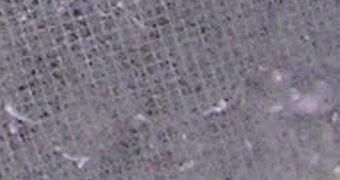A new disturbing theory has been elaborated by a scientist who warns us that lint from synthetic fabrics, such as polyester coming out of our driers is actually dangerous and can put our heath at risk. At this point in time, Mark Browne from the University College Dublin is still developing his breakthrough, in order to be able to establish the real dimensions of this threat.
Browne has studied ocean pollution, while focusing his attention on small, almost invisible parts of plastic. The Great Pacific Garbage Patch raised the level of awareness of the public opinion, after morbid pictures of dead baby birds filled with plastic items appeared in museums.
The scientists tried to go beyond this phenomenon and investigate the contribution of tiny pieces of plastic, 65% with a diameter smaller than 1 mm, in polluting the environment. According to his data, micro-plastic pollution mostly affects the urban areas, as one of the major threats is polyester.
While applying his knowledge gain while analyzing the role of plastic components of small dimensions, the experts thought about checking the inside of his washing machine, where he found that after washing a fleece one could obtain no less than 2,000 micro-fibers of plastic pollution.
The material would act like a sponge, accumulating chemicals which might be able to end up in our organisms.
"It acts as a mop and attracts contamination around it. You've got this thing that accumulates an awful lot of contaminants and it's made up of chemicals itself. When it is ingested by organisms it can transfer into tissues,” claims Browne.
Somehow, lint might become part of our lunch or dinner and the scientists says that such a scenario implies great risks for our health.
While his theory hasn't been widely accepted or rejected, there are still many question marks around this topic. Taking into consideration the present context, it is preferable to embrace some measures of precautions than having to face unexpected consequences triggered by negligence.
"I personally in the absence of better information I would adopt the precautionary principle. I would avoid doing that until some scientifically credible information is out to say that it's not a problem.” concluded Browne.

 14 DAY TRIAL //
14 DAY TRIAL //